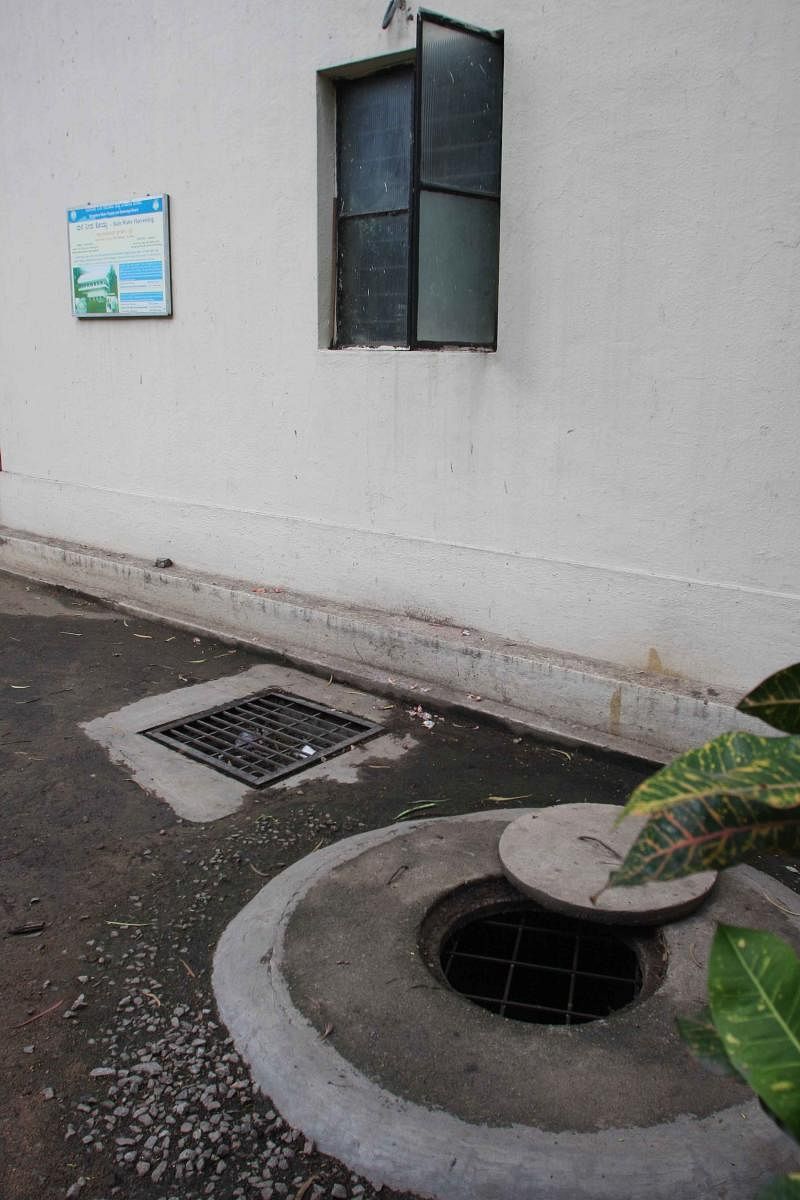
The BWSSB says Bengaluru is doing well on the rainwater harvesting (RWH) front, while experts say it could do much better.
“In 2015, we used to get a thousand complaints asking for water every day. Now we get only 600. We are supplying the same quantity of Cauvery water as we were in 2015. This is due to rainwater harvesting and groundwater recharging,” a BWSSB official told Metrolife.
Over 1.7 lakh properties in Bengaluru have installed RWH systems so far and a majority are residential, he says. “We are expecting 25,000 buildings to join in by March 2023,” he informs.
He denied the charge that the BWSSB is not enforcing RWH rules stringently. “We collected Rs 3 crore in fines last year. Only 5-6% of buildings attract a penalty. If they don’t harvest the amount of water as mandated, we charge a penalty of 50% on the water bill for the first three months and 100% thereafter,” he says.
Close monitoring of a huge city like Bengaluru is difficult as BWSSB employees number just 2,000, he says.
‘Some reluctant to spend money on RWH systems’
Enquiries for rainwater harvesting by apartments and houses in Bengaluru have increased but vendors and consultants say the city is a long way from exploiting its full harvesting potential.
Disagreement among residents on financing RWH systems is a hindrance, and awareness about the great return on investment is still low.
IT engineer and water activist Ganesh Shanbhag, who has devised a simplified RWH system, received 200 inquiries this year. “Only 20 have agreed to instal the system,” he says.
Vivek Chandra, owner-proprietor of Nesara Constructions and Rainwater Harvesting, says the resistance comes mostly from buildings with 20-30 flats because they lack storage and corpus funds. Sometimes, bigger complexes are reluctant to spend even Rs 3,000 on consultation, he says. John Daniel, who provides RWH structures through his company Great Bear Promotions, says eventually everyone realises the value of rainwater harvesting. “There can be delays. One client agreed to our RWH installation after five years,” he says.
About 10% of homes and apartments in the ‘110 villages’ located in Bengaluru’s peripheries harvest rainwater seriously, Luke Dhanaraj, water management consultant and vice-president, technical services, Bangalore Apartments’ Federation, estimates. The rest have put in “some RWH arrangement for the sake of obtaining NOC” from the civic authorities, he says. BWSSB plans to supply Cauvery water to these 110 villages by 2023. BWSSB water connections cover a little over 70% of the city, says an official. These companies and consultants also claim that in many cases, builders put up mock structures just to get approval. The BWSSB should inspect them, they say.
How RWH saves money
Sridevi Gopalan, president of an all-woman owner’s association of Victory Harmony apartment in Hebbal, says they installed the RWH system last October.
Their dependence on water tankers has come down — from 10 per day to two now and from 150 tankers a month during peak summer to 25 this year.
“The association spent Rs 2.25 lakh, which we recovered in just two months of installing rainwater harvesting. The monthly water bill for each house has come down by Rs 800,” she says. IT engineer Ganesh Shanbhag lives in an 88-unit apartment in Singasandra near Electronics City. The residents have installed 10 filters and one underground tank. “Just from an hour’s rainfall last week, we collected 2 lakh litres in our tank. This took care of our water needs for five days,” he says.
- *BWSSB estimates RWH can meet 40% of the water needs of Bengaluru.
- Installation costs about Rs 20,000 for independent houses and small buildings and it can go up to Rs 15 lakh for a 500-unit apartment complex.
- It can take a week, 15 days to a month, and up to three months to install RWH systems in small, mid-, and large-size apartments.